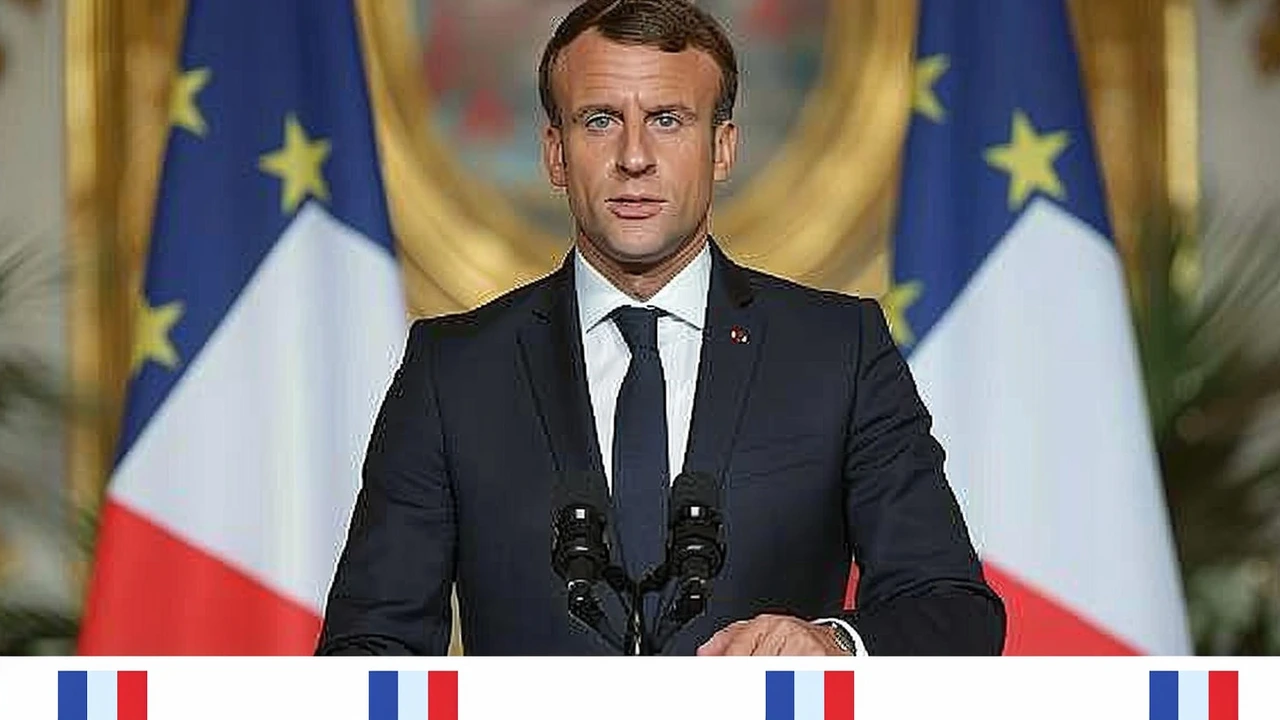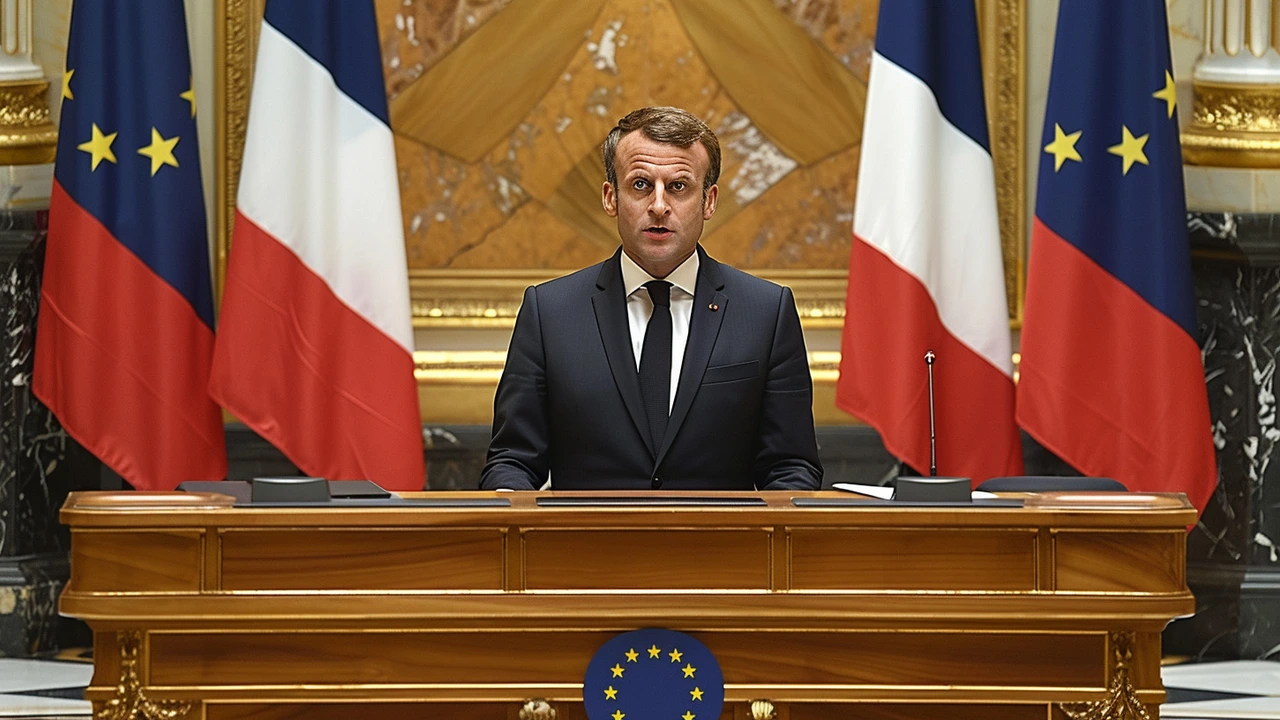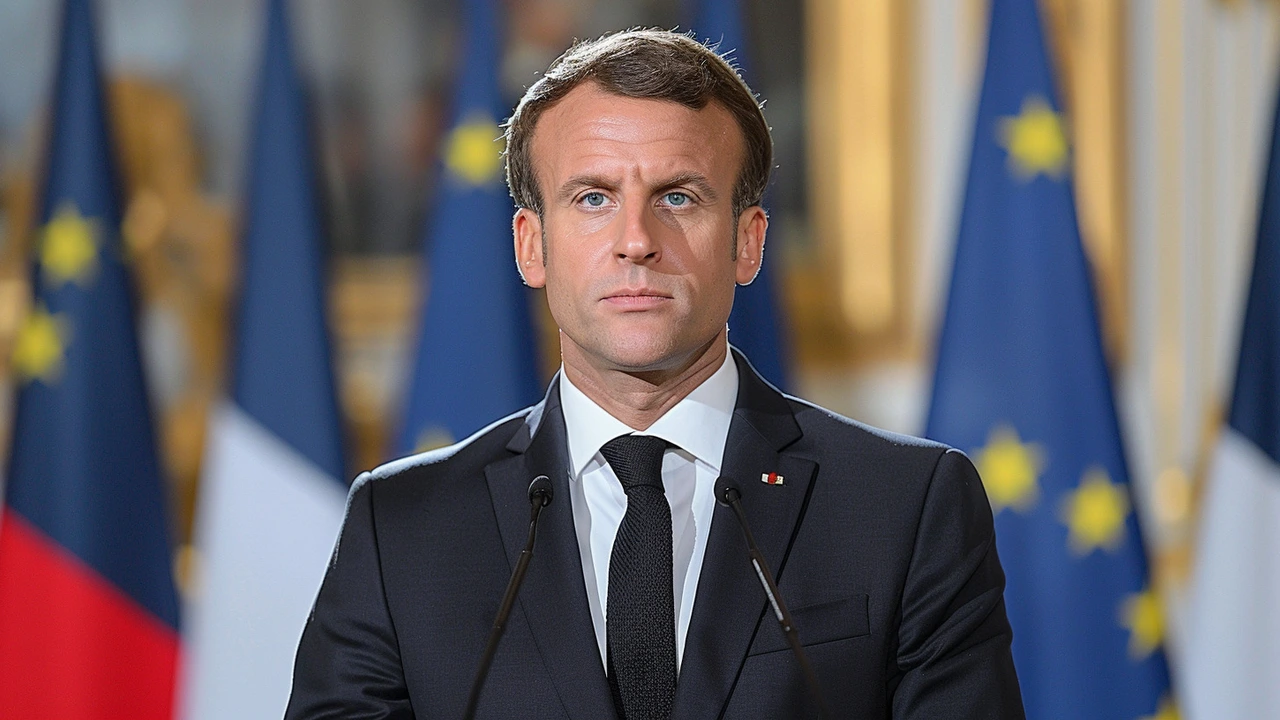Macron’s Response to Electoral Setback
French President Emmanuel Macron has undertaken a dramatic and unexpected political maneuver by announcing the dissolution of the French parliament. This decisive action follows his party's significant defeat in the European Union (EU) elections. Macron stated his intent to hold a snap legislative vote, aiming to address the political shift indicated by these results. This move comes as a direct response to the success of Marine Le Pen’s far-right National Rally (RN), which has evidently gained substantial traction among the French electorate.
The EU election results painted a stark picture of France's political landscape. According to exit polls conducted by France TV, Le Pen's National Rally is projected to secure approximately 31.5% of the votes. In contrast, Macron's Renaissance party trailed dramatically with just 15.2%. The numbers reflect a significant shift in voter sentiment, which Macron acknowledged could not be ignored. In a televised address, he underscored the necessity of responding to the clear message from the electorate, hinting at the broader implications for future national politics.
Implications of a Snap Election
Macron acted upon Le Pen’s call for new elections, a decision marked by its inherent risks. The most significant of these is the potential for the National Rally to secure a parliamentary majority. Such an outcome would dramatically alter the balance of power within France, limiting Macron’s ability to steer domestic policies during the remaining years of his presidency. Given that Macron is ineligible for a third term, with his presidency set to conclude in 2027, the forthcoming elections could determine the political trajectory of France long after his departure from office.
The first round of the parliamentary elections has been scheduled for June 30, with a second round to follow on July 7. These dates were set following extensive deliberation, aiming to balance the urgency of the situation with the logistical demands of conducting a national vote on short notice. The elections will serve as a crucial barometer for the French public’s current political inclinations, as well as test the resilience of Macron’s leadership.

Rise of Populism in Europe
The EU elections have spurred discussions about the rise of populism and far-right ideologies across Europe. Record-breaking support for parties like the National Rally is not an isolated phenomenon. Many European nations have seen similar surges, suggesting a broader continental shift toward populist ideals. Despite this trend, the European People's Party (EPP) is projected to win the most seats in the European Parliament. However, it’s noteworthy that their projected gains are modest, indicating a volatile and fragmented political landscape.
This backdrop amplifies the significance of Macron's decision. By calling for new legislative elections, he’s positioning France at the forefront of a debate that is reverberating throughout Europe. This decision holds the potential to redefine France’s role within the EU, while also influencing broader discussions about the future direction of the Union itself.
The Risks and Rewards
Several risks accompany Macron’s bold strategy. If the National Rally were to secure a majority in the new parliament, Macron’s capacity to implement his agenda would be severely constrained. Even more challenging would be the task of navigating a political environment dominated by ideologies opposed to his vision for France and its role in the world. Yet, there are also potential rewards. Should Macron’s party perform better than expected, it could validate his leadership and reaffirm his political influence.
This high-stakes gamble is not entirely without precedent. Political leaders have, at times, managed to turn electoral setbacks into opportunities for renewal and reinvigoration. Macron’s extensive experience in navigating turbulent political waters may yet serve him well. However, the volatile nature of contemporary politics means that predicting the outcome of such a maneuver is fraught with uncertainty.

Looking Ahead
The forthcoming parliamentary elections are poised to be a defining moment in French politics. The results will provide insights into the public’s response to Macron’s governance and their openness to alternative political narratives. These elections will likely feature intense campaigning, as parties seek to capitalize on the current momentum.
As France prepares for a summer of political activity, the stakes could not be higher. Macron’s decision to call for a snap election is both a testament to his willingness to engage directly with the electorate and an acknowledgment of the substantial challenges that lie ahead. His ability to navigate this complex landscape will be closely watched by allies and adversaries alike, with implications that extend beyond France’s borders.
For Macron, the coming weeks will be a critical period of reassessment and strategy. The outcome of the elections may well dictate his remaining years in office, shaping his legacy and influencing the future direction of France. Meanwhile, the rest of Europe observes with keen interest, recognizing that the implications of these elections resonate far beyond French politics.

13 Responses
The political calculus deployed by the executive in this instance borders on algorithmic overreach; a chimeric blend of crisis-management heuristics and performative populism is evident. One must deconstruct the semiotic layers embedded within the televised address to appreciate the meta-narrative of democratic reconstitution. The dissolution of parliament, while ostensibly a reactive measure, also functions as a strategic amplification of executive authority, leveraging the electorate's perceived disillusionment. The statistical mismatch-15.2% versus 31.5%-serves as a catalyst for a legitimacy crisis that the incumbent seeks to reframe through procedural recalibration. This maneuver is steeped in political engineering, employing temporal compression to destabilize entrenched opposition structures. Moreover, the decision aligns with a broader trend of executive aggrandizement across the continent, where governance models are increasingly subjected to volatility indices. By invoking the specter of far‑right ascendancy, the administration attempts to galvanize centrist constituencies under a banner of defensive liberalism. The resulting legislative timetable-June 30 and July 7-reflects not merely logistical necessity but a calculated acceleration of the political feedback loop. Each date is a datum point in a larger experiment on voter sentiment elasticity. In the context of European Union dynamics, this action reverberates beyond national borders, signaling a potential shift in intra‑Union power balances. The constitutional provisions governing dissolution are being tested for elasticity under duress, raising questions about systemic resilience. Critics will argue that this is a gambit fraught with peril, yet proponents contend that decisive action averts a more pernicious ideological shift. The discourse surrounding this decision is saturated with hyperbolic rhetoric, yet beneath the surface lies a methodical reconfiguration of parliamentary architecture. Were the National Rally to secure a parliamentary majority, policy trajectories would diverge sharply from the incumbent's reformist agenda, precipitating a paradigm shift. Conversely, a favorable outcome for Renaissance could reassert the centrality of pro‑European, liberal policy frameworks. The stakes are thus multidimensional, encompassing domestic governance, European integration, and the ideological trajectory of the French polity. Ultimately, this episode will be dissected in political science curricula as a case study in crisis‑driven institutional overhaul, with outcomes that will inform comparative analyses for years to come.
Macron’s move is a high‑risk reset that could either curb far‑right momentum or backfire spectacularly.
It’s clear that the French electorate is sending a powerful message; letting both sides listen could foster a healthier dialogue.
In these turbulent times, a resolute yet measured approach can inspire confidence among citizens, encouraging constructive participation in the democratic process.
One must appreciate the precision with which the executive has invoked constitutional mechanisms, thereby reasserting the primacy of legislative renewal while simultaneously delineating the parameters of political accountability.
While the procedural rigor is commendable, one cannot ignore the inherent irony that a system predicated on consensual governance now leans on a scenario that may amplify polarizing forces; such paradoxes merit a deeper philosophical inquiry into the nature of democratic resilience.
i think theyre setting up a whole new agenda hidden behind the snap election, like the deep state is pulling strings behind the scenes and n00bs wont see it coming.
Go team, you’ve got this!
The electoral tide is but a fleeting shadow; one must look beyond the surface to grasp the abyss of existential discontent.
Wow, what a whirlwind! 🌪️ This is the kind of political drama that keeps us on the edge of our seats! 💥 Let’s all stay hopeful and support constructive dialogue! 🙏✨
Ah, the sweet aroma of political theater-one can hardly contain the sarcasm that wafts through these snap‑election announcements. Truly, it’s a masterclass in how not to win hearts.
This is absolute chaos, a dramatic circus that threatens to tear the very fabric of our Republic apart! The audacity is beyond belief; only a fool would stand by and watch.
Interesting turn of events-let’s see how the narrative unfolds.